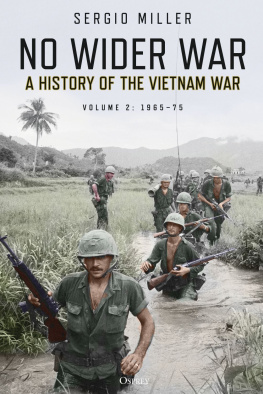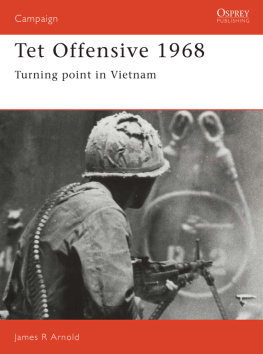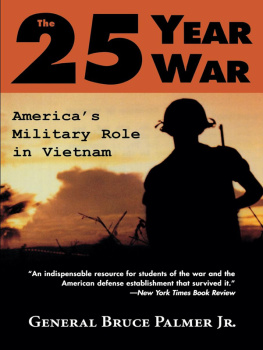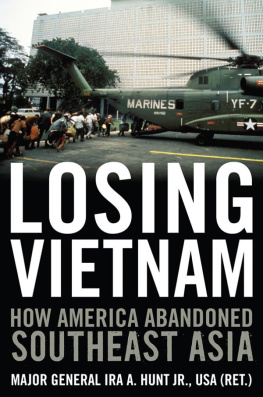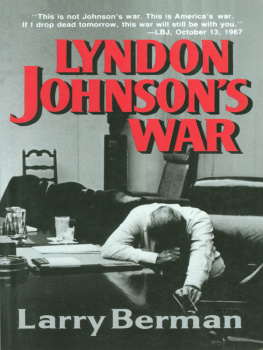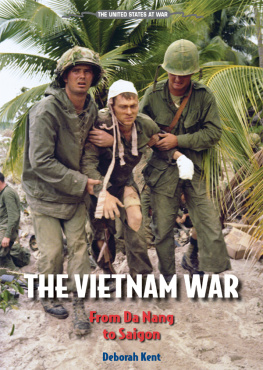The American South
and the Vietnam War
The American South
and the
Vietnam War
Belligerence,
Protest,
and Agony
in Dixie
JOSEPH A. FRY

Due to variations in the technical specifications of different electronic
reading devices, some elements of this ebook may not appear
as they do in the print edition. Readers are encouraged to
experiment with user settings for optimum results.
Copyright 2015 by The University Press of Kentucky
Scholarly publisher for the Commonwealth,
serving Bellarmine University, Berea College, Centre College of Kentucky, Eastern
Kentucky University, The Filson Historical Society, Georgetown College,
Kentucky Historical Society, Kentucky State University, Morehead State
University, Murray State University, Northern Kentucky University, Transylvania
University, University of Kentucky, University of Louisville, and Western
Kentucky University.
All rights reserved.
Editorial and Sales Offices: The University Press of Kentucky
663 South Limestone Street, Lexington, Kentucky 40508-4008
www.kentuckypress.com
Library of Congress Cataloging-in-Publication Data
Fry, Joseph A., 1947
The American South and the Vietnam War : belligerence, protest, and agony in Dixie / Joseph A. Fry.
pages cm. (Studies in conflict, diplomacy, and peace)
Includes bibliographical references and index.
ISBN 978-0-8131-6104-4 (hardcover : alk. paper)
ISBN 978-0-8131-6109-9 (pdf) ISBN 978-0-8131-6108-2 (epub)
1. Vietnam War, 19611975Southern States. 2. Vietnam War, 19611975Political aspectsSouthern States. 3. Southern StatesPolitics and government20th century. 4. Public opinionSouthern StatesHistory20th century. 5. Southern StatesHistory, Military20th century. 6. Vietnam War, 19611975Influence. I. Title.
DS559.62.S68F79 2015
959.704'310975dc23 2014049411
This book is printed on acid-free paper meeting
the requirements of the American National Standard
for Permanence in Paper for Printed Library Materials.

Manufactured in the United States of America.

| Member of the Association of
American University Presses |
For Sandy
Contents
Abbreviations
ABM | Anti-Ballistic Missile System |
AFB | air force base |
ARVN | Army of the Republic of Vietnam (South Vietnam) |
CIDG | Civilian Irregular Defense Group |
CINCPAC | Commander in Chief, Pacific Command |
CO | conscientious objection/objector |
CORE | Congress of Racial Equality |
DMZ | demilitarized zone |
DOD | Department of Defense |
DRV | Democratic Republic of Vietnam (North Vietnam) |
GVN | Republic of South Vietnam |
HBCU | historically black colleges and universities |
JCS | Joint Chiefs of Staff |
LBJ | Lyndon Baines Johnson |
LZ | landing zone |
MACV | Military Assistance Command, South Vietnam |
NAACP | National Association for the Advancement of Colored People |
NASA | National Aeronautics and Space Administration |
NATO | North Atlantic Treaty Organization |
NCO | noncommissioned officer |
NLF | National Front for the Liberation of Vietnam |
NSC-68 | National Security Council Paper No. 68 |
NVA | North Vietnamese Army |
OAS | Organization of American States |
OPPLAN 34-A | Operation Plan 34-A |
PCUS | Presbyterian Church in the United States |
PNBC | Progressive National Baptist Convention |
POW/MIA | prisoner of war/missing in action |
PRC | Peoples Republic of China |
R and R | rest and recuperation |
ROTC | Reserve Officer Training Corps |
SALT | Strategic Arms Limitation Treaty |
SASC | Senate Armed Services Committee |
SBC | Southern Baptist Convention |
SCLC | Southern Christian Leadership Conference |
SDS | Students for a Democratic Society |
SEATO | Southeast Asia Treaty Organization |
SFRC | Senate Foreign Relations Committee |
SNCC | Student Nonviolent Coordinating Committee |
SPIS | Senate Preparedness Investigating |
Subcommittee |
SSOC | Southern Student Organizing Committee |
UN | United Nations |
USAF | United States Air Force |
VC | Vietcong |
VVAW | Vietnam Veterans Against the War |
Introduction
Place matters in how Americans have responded to and been affected by US foreign policy. Over the past twenty-five years, scholars have cited the benefits of examining the impact of domestic regionalism on the formation and implementation of US foreign policy. In 1987 Carl N. Degler urged that the American South be viewed as co-creator of the nations history rather than an outsider or an obstacle to national development; and, he declared, What is called American foreign policy has often been heavily influenced if not molded by the South. A decade later, in 1998, Peter Trubowitz asserted, In the final analysis, it is the realities of power inside a country, not the distribution of power in the international system, that determine the course of the nations foreign policy. He continued, When viewed over time and across a wide range of issues, sectional interests emerge as a powerful and consistent force shaping US foreign policy. More recently, Paul Boyer has contended that all diplomatic history is local: Just as other fields of history are taking into account the local and grassroots sources and consequences of the processes they study, so diplomatic historians are becoming more aware of how illuminating this perspective can be.
Nowhere has this dynamic of regional influence on US foreign relations been more apparent than in the American South. As residents of the most self-conscious and persistent US region from the nations founding through at least the mid-1970s, southerners have habitually viewed US foreign relations through a distinctly regional lens grounded in a variety of shared cultural values, historical assumptions, and perceived regional interests. Over the course of American history, regional foreign policy preferences have ultimately been expressed through the political process, and regions characterized by one-party dominance have had the greatest impact on US foreign relations. Here again, the South has been conspicuous.
Next page








